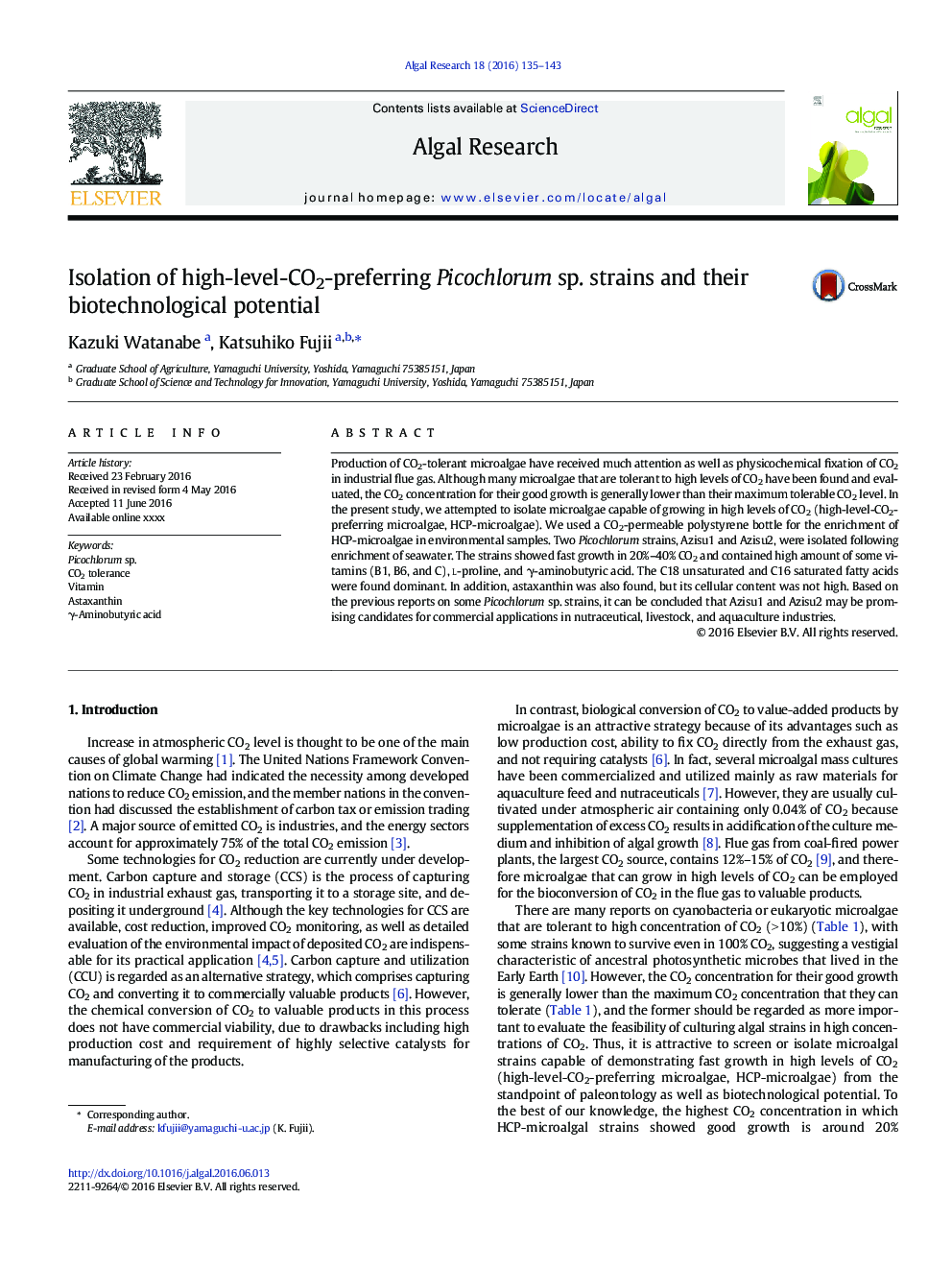| Article ID | Journal | Published Year | Pages | File Type |
|---|---|---|---|---|
| 8086776 | Algal Research | 2016 | 9 Pages |
Abstract
Production of CO2-tolerant microalgae have received much attention as well as physicochemical fixation of CO2 in industrial flue gas. Although many microalgae that are tolerant to high levels of CO2 have been found and evaluated, the CO2 concentration for their good growth is generally lower than their maximum tolerable CO2 level. In the present study, we attempted to isolate microalgae capable of growing in high levels of CO2 (high-level-CO2-preferring microalgae, HCP-microalgae). We used a CO2-permeable polystyrene bottle for the enrichment of HCP-microalgae in environmental samples. Two Picochlorum strains, Azisu1 and Azisu2, were isolated following enrichment of seawater. The strains showed fast growth in 20%-40% CO2 and contained high amount of some vitamins (B1, B6, and C), l-proline, and γ-aminobutyric acid. The C18 unsaturated and C16 saturated fatty acids were found dominant. In addition, astaxanthin was also found, but its cellular content was not high. Based on the previous reports on some Picochlorum sp. strains, it can be concluded that Azisu1 and Azisu2 may be promising candidates for commercial applications in nutraceutical, livestock, and aquaculture industries.
Related Topics
Physical Sciences and Engineering
Energy
Renewable Energy, Sustainability and the Environment
Authors
Kazuki Watanabe, Katsuhiko Fujii,
